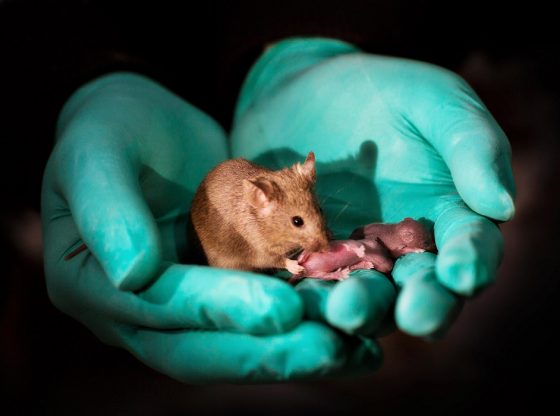
This is a lecture at The Vanderbilt University on the subtle but significant impact on human traits from Neanderthals.
Since 2010 scientists have known that people of Eurasian origin have inherited anywhere from 1 to 4 percent of their DNA from Neanderthals.
The discovery spawned a number of hypotheses about the effects these genetic variants may have on the physical characteristics or behavior of modern humans, ranging from skin color to heightened allergies to fat metabolism…generating dozens of colorful headlines including “What your Neanderthal DNA is doing for you” and “Neanderthals are to blame for our allergies” and “Did Europeans Get Fat From Neanderthals?”
Now, the first study that directly compares Neanderthal DNA in the genomes of a significant population of adults of European ancestry with their clinical records confirms that this archaic genetic legacy has a subtle but significant impact on modern human biology.
“Our main finding is that Neanderthal DNA does influence clinical traits in modern humans: “We discovered associations between Neanderthal DNA and a wide range of traits, including immunological, dermatological, neurological, psychiatric and reproductive diseases,” said John Capra, senior author of the paper “The phenotypic legacy of admixture between modern humans and Neanderthals” published in the Feb. 12 issue of the journal Science. The evolutionary geneticist is an assistant professor of biological sciences at Vanderbilt University.
Some of the associations that Capra and his colleagues found confirm previous hypotheses. One example is the proposal that Neanderthal DNA affects cells called keratinocytes that help protect the skin from environmental damage such as ultraviolet radiation and pathogens. The new analysis found Neanderthal DNA variants influence skin biology in modern humans, in particular, the risk of developing sun-induced skin lesions called keratosis, which is caused by abnormal keratinocytes.
In addition, there were a number of surprises. For example, they found that a specific bit of Neanderthal DNA significantly increases the risk for nicotine addiction. They also found a number of variants that influence the risk for depression: some positively and some negatively. In fact, a surprising number of snippets of Neanderthal DNA were associated with psychiatric and neurological effects, the study found.











![OpenAI. (2025). ChatGPT [Large language model]. https://chatgpt.com](https://www.illustratedcuriosity.com/files/media/55099/2638a982-b4de-4913-8a1c-1479df352bf3-350x260.webp)










